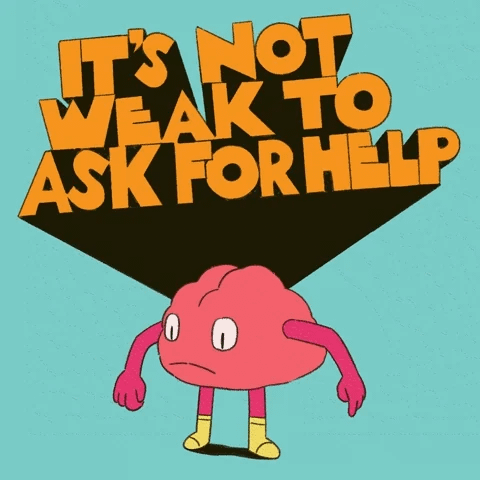"I tried to groan, Help! Help! But the tone that came out was that of polite conversation."
(Samuel Beckett)
Hi and welcome back to your weekly reminder that childhood abuse is a widespread, underreported and devasting phenomenon. According to UNICEF, 2 in 3 children face violent punishment at home on a regular basis, and more than two thirds of children are subjected to both physical punishment and psychological aggression (more harrowing data available here).
Today’s topic is asking for help, something that adult children of abuse and neglect tend to be pretty bad at.
And I don’t mean help with the big stuff like money, housing or second chances in relationships. I mean asking for help with anything, like setting the dinner table or doing a vlookup.
At the heart of childhood trauma is a terrifying, indelible sense of loneliness. A child stuck in a toxic environment or captive in unsafe relationships communicates their pain in hopes that adults will remove the source of chronic stress. As the abuse reoccurs, the child eventually concludes that either help doesn’t exist, or they are not worthy of it. Either way, asking for help is deemed futile and abandoned, and maladaptive coping strategies such as dissociation or people pleasing are embraced instead. In the absence of any protective and comforting adult, the world of the child becomes split into people who inflict harm, and bystanders.
Of course, the real world is far from that. While psychopaths and narcissists exist, by and large people are deeply pro-social creatures that find joy and meaning in connecting with others, contributing to a higher goal, offering and receiving help, and being part of a community. Togetherness is also what allowed us as a species to survive and evolve. Going at it alone will take more time, effort and most likely lead to poorer results than if you engage with others and - ugh - ask for help.
Asking for help is good for one’s goals, and interpersonal appeal. Yes - asking people for a small favor is a good way to get on their good side. No, seriously, that’s a documented cognitive bias also known as the Benjamin Franklin effect.
So back to you, and me.
How comfortable are you asking for help? How often do you ask for help from your partner, friends, co-workers or boss? How do you feel receiving help?
The thought alone of asking anyone for anything made me queasy a few years ago. It is still not my first thought when facing a roadblock. But - now that my rational brain is online more - I do it more often, sometimes as a pure experiment. It still amazes me how much help simplifies my life, and how unremarkable asking for it is to most other people.
If you’re uneasy asking for help at work here’s a good article that can help you learn how to do it. So go on, try something different and let me know how that works.
Thanks for tuning in,
Adina






